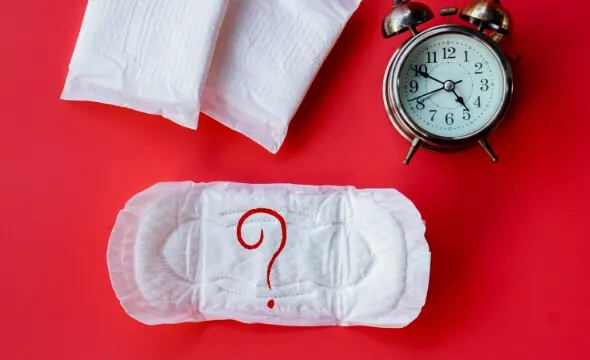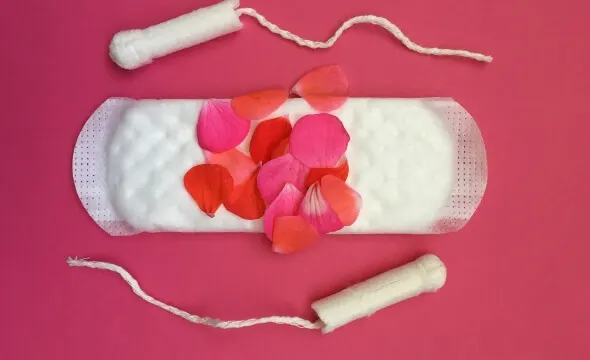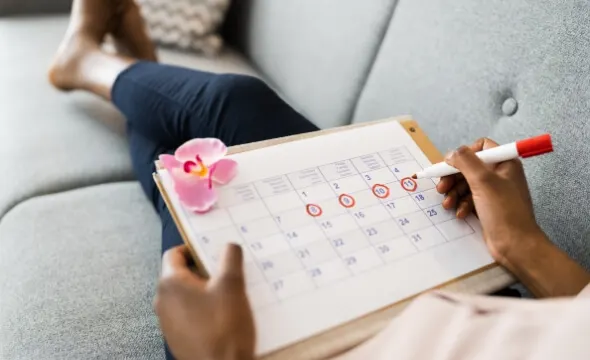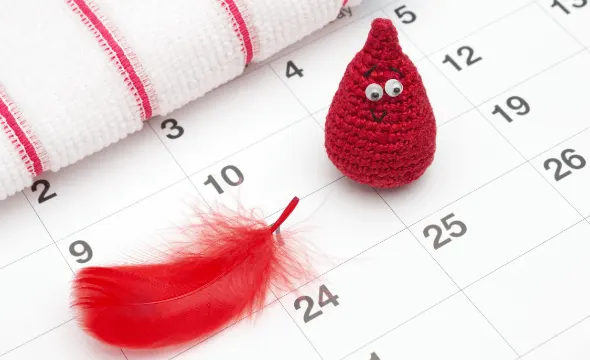How Long Does A Period Last

When you first get your periods, there are probably a gazillion questions in your head about menstruation. The most prominent being 'how long does a period last?' or 'what is a period?' Menstruation is a monthly cycle that begins with your body releasing an egg for a potential pregnancy. When this egg doesn't fertilise, your uterus sheds its inner lining, also known as a period.
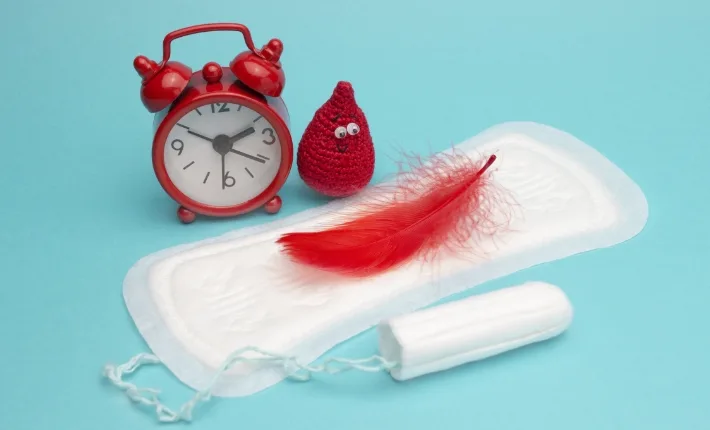

How long does your first period last?

Your very first period can last anywhere between two to eight days.
Your very first period can last anywhere between two to eight days. And you can expect your next period to start after 21 to 40 days, sometimes even longer. Its normal if your periods aren't following a schedule or aren't regular in the initial years of your menstruation journey. It will regularise after around two years. An average menstrual cycle, that is the period from the first day of your period to the day before your next period, is between 21 to 45 days for teens.
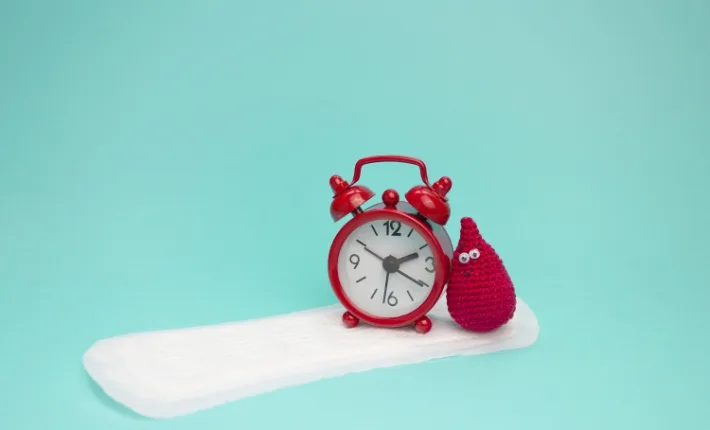

How long does a full menstrual cycle last?
Each woman's cycle is different; however, a typical period cycle length can last anywhere between two to eight days. Most women experience different symptoms when they're on their period such as cramps, body ache, nausea etc. Some of these symptoms arrive a few days before you get your period and are called premenstrual syndrome (PMS). For adults, a typical menstrual cycle lasts between 21 to 35 days. It is a general understanding that as you grow older, your periods tend to get lighter and more regular.
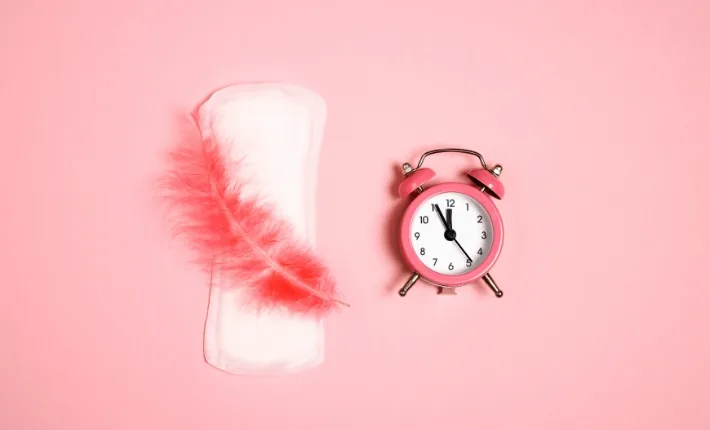

Factors affecting period length
If you are having irregular periods, there are many reasons or factors that can affect the length of your menstrual cycle. Here are some of them:
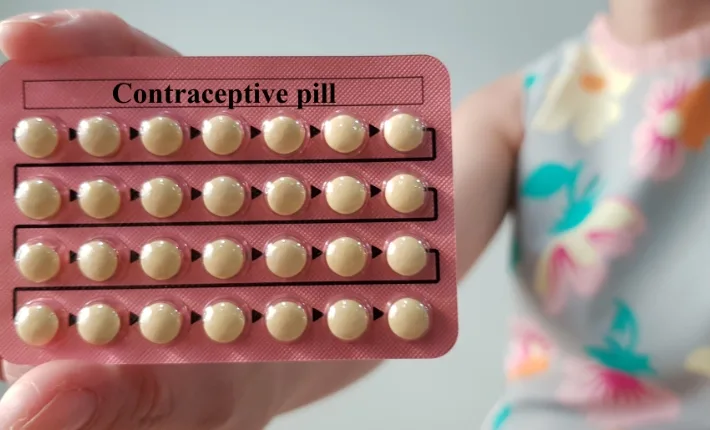

Contraception
If you're using any kind of contraceptives such as hormonal birth control pills, IUDs etc, then they can cause irregularities in the beginning.
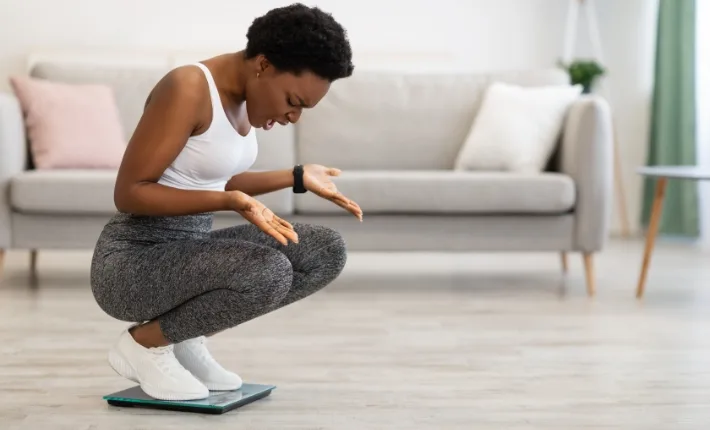

Fluctuations in weight

An extreme weight loss can affect the length of your cycle.
An extreme weight loss can affect the length of your cycle.
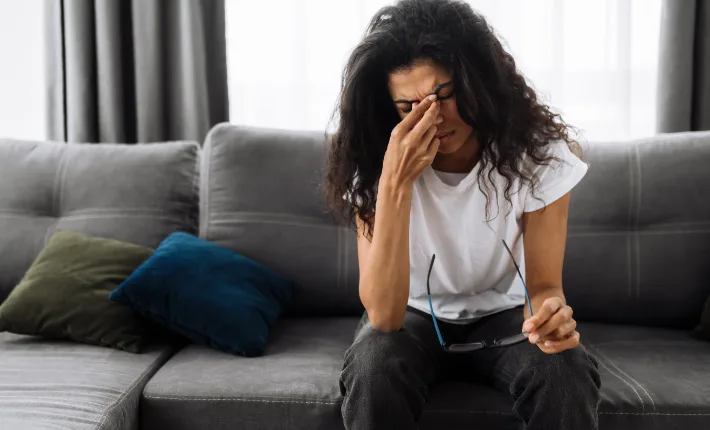

Stress
One of the most common reasons why women experience irregularities in their menstrual cycle is increased stress.
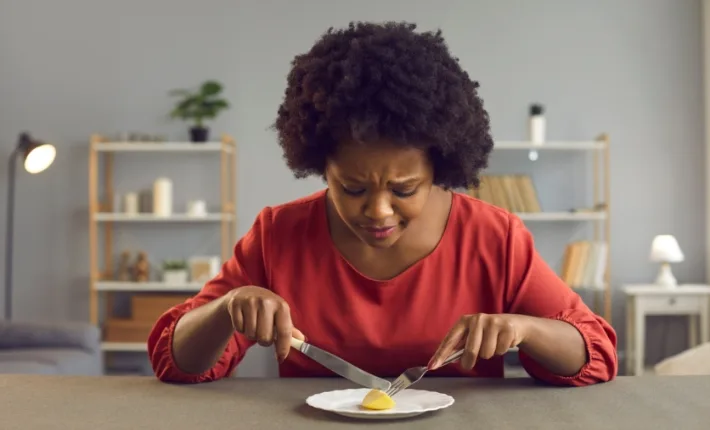

Changes in diet
Any major or extreme diet alterations can incite irregularities in your menstrual cycle. Be wary before you think of adopting any latest fad in diet.
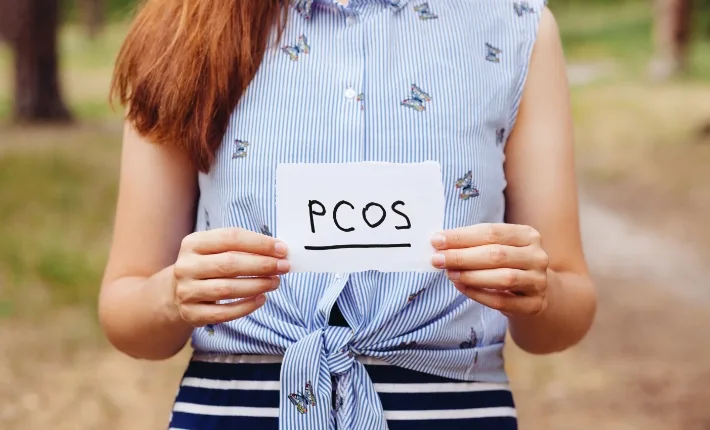

Other factors
Conditions like polycystic ovarian syndrome (PCOS), injury or infections such as pelvic inflammatory disease (PID) are other possible contributors that affect the length of your periods.
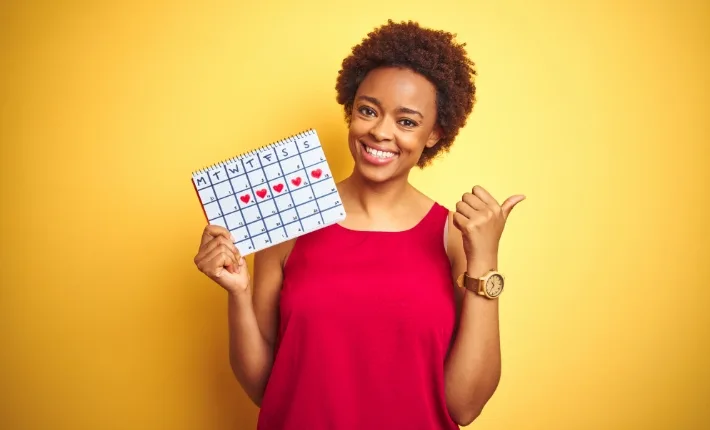

How to be prepared for periods
Irrespective of the length of your menstrual cycle or how long your period lasts, being prepared for it is the best way forward. But to stay prepared, how to know when your period is coming? One of the best ways to keep a tab on your health and also a way to get to know your body better is to track your menstrual cycle. Use the Always period calculator to track your periods. Answer three simple questions about your last period and you'll be able to track your period instantly. Doing this on a regular basis will help you stay mentally prepared and also learn the symptoms your body throws over the course of your menstrual cycle.
Once you've an idea of when to expect your period, the next logical step would be to stock up on sanitary pads. Keep them handy in your bag, school locker, office drawer or in your bathroom. Get your pack of ALWAYS Cotton Soft Pads that enables you to enjoy real cottony softness with ultimate protection. The pads are designed with a soft cover that is gentle on your skin, and its wings help keep the pad in place so you can carry out your daily activities with ease and comfort. Alternatively, you can also opt for tampons like ALWAYS Tampax Compak. These are designed with a smooth, compact applicator for discretion, and a built-in protective skirt to help prevent leakage for up to 8 hours. What's best is that they come in various levels of absorbencies so you can pick and choose what suits you best over the course of your period.


When to see a doctor
It is true that each woman is different and hence, every cycle is different. However, you may experience certain symptoms that aren't a healthy sign and you may miss them. If you notice any of the below mentions signs and symptoms, mentioning them to your doctor on your next visit will help.
1. If your periods have been steady for a long time and have suddenly become irregular.
2. If you don't get your periods for more than 90 days, and you're not pregnant.
3. You have bled much heavier than usual.
4. You have to change your pad or tampon every two hours.
5. You experience severe pain that is unusual.
As much as we'd like to have an exact figure for a reference to know the normal length of a menstrual cycle, it varies for every person. Tracking your periods and detecting patterns and symptoms will help you figure out your own unique cycle. This will enable you to notice any changes or unusual symptoms.
Read more about period symptoms, causes of irregular periods and what causes period pains.
FAQs
1. How many days is a normal period?
Each woman's cycle is different, however, a typical period cycle length can last anywhere between two to eight days
2. Is a 2-day period normal?
Yes, a period that lasts anywhere between 2 to 8 days is considered a normal period cycle length.
3. Do periods get shorter with age?
For adults, a typical menstrual cycle lasts between 21 to 35 days. It is a general understanding that as you grow older, your periods tend to get lighter and more regular.
4. How to calculate the length of menstruation cycle?
To know how to calculate your menstruation cycle length, you need to track some details for three cycles. You can start by noting down the first day of your period. Count the number of days until the first day of your next period, which is day one of your next cycle. This number is the length of your cycle for that month. Track for 3 months and add each cycle's length to get the total number of days. Divide this total by three and you'll have your average cycle length. You can also opt to use period calculators such as the ALWAYS Period Calculator which is user-friendly and simple.
5. How long does a period last?
For all those who’ve recently begun menstruating or pre-teens who are anticipating their periods, you may have many questions about periods. One of which would be ‘How long does a period last?’ The fact is that it differs widely and what is normal for your bestie may not necessarily apply for you. Typically, your period can last anywhere between two to seven days. It usually lasts for about 5 days for most women. The first two days is when the bleeding is the heaviest and it will gradually get lighter to a pinkish or brown hue. To manage your periods, use superior quality menstrual products like Always pads.
Disclaimer
Please note the date of last review or update on all articles. No content on this site, regardless of date, should ever be used as a substitute for direct medical advice, diagnosis or treatment from your doctor or other qualified clinician. Always is committed to ensuring that all of our products meet rigorous safety standards; Always pads prioritize safety, protection and comfort of its consumers.




